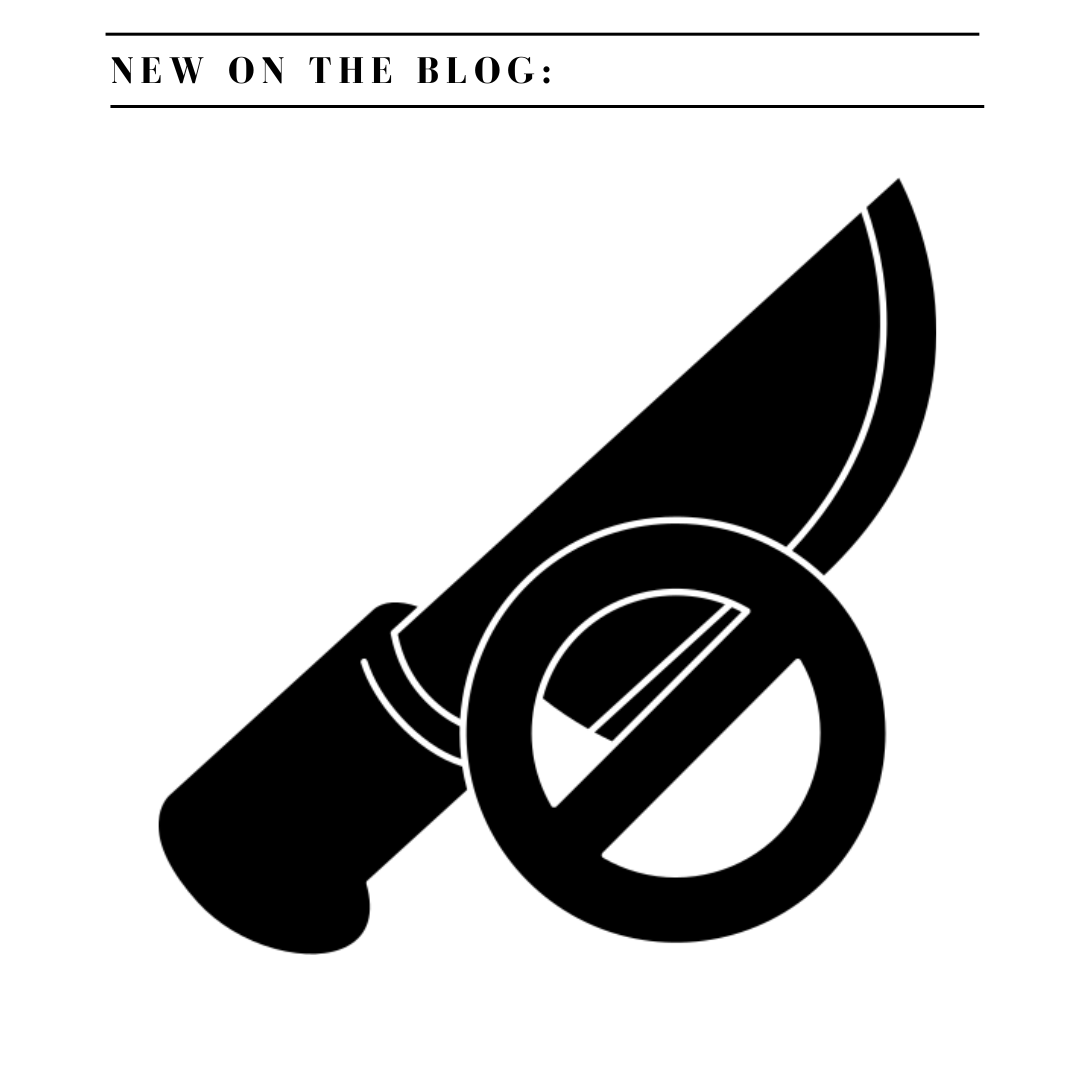 Add My Company
Add My Company

As part of Operation Sceptre, Devon and Cornwall police have used a metal detecting knife arch to raise awareness of knife carrying and crime in the south west. In this post we look at this initiative and the importance of tackling knife crime.
We’ve previously highlighted Operation Sceptre, the national police initiative to tackle knife crime involving 43 police forces across England and Wales. Forces have coordinated efforts over specific weeks of intensified activities to target knife crime at every stage from the root causes to knife acquisition and law enforcement.
Around 10,000 Knives Taken Off the Streets
Subsequent to the week of action in May 2023 (15th May to 21st May) it was announced that 9,737 knives had been successfully removed from the streets with 1,693 people arrested including 829 for knife crime related offences.
A big part of this week of intensive knife-crime attention has been youth engagement. During the week of coordinated action in May around 2,810 school engagement visits were carried out along with about 2,000 community or educational events. Police officers also focused on visiting over 2,000 retailers to talk about the sale of knives and carry out anonymous test-purchases. From 670 test purchases 114 (17%) resulted in failure. Retailers who failed the knife-purchase tests were either provided with education and guidance regarding the regulations governing the sale of knives or, in some cases, they were prosecuted.
Operation Sceptre has also involved working closely with HM Prison Service to tackle prison violence and disrupt the supply and use of knives and bladed weapons in prisons.
November Week of Action
Operation Sceptre involves two annual weeks of focused anti-knife-crime action - one in May and a second in November. The latest knife crime week of focused action, coordinated by the National Police Chief’s council, took place between Monday November 13th Sunday 19th. One of the primary aims is to raise awareness of knife crime along with what police forces are doing to detect, reduce and prevent it.
As well as undertaking a range of activities involving engagement, education and raising awareness the week of action also provides the opportunity for people to surrender knives or other bladed items to one of the many amnesty bins located in various police stations. Some recycling centres have also joined the initiative by providing facilities for people to safely and anonymously surrender knives and potentially dangerous bladed instruments.
Forces are doing everything they can to reinforce the message that knife-carrying is unacceptable and dangerous. They recognise how early intervention and establishing measures to tackle the root causes that prompt people to carry knives are essential.
Responsibilities of Retailers
Retailers need to do what they can to make certain knives are not falling into the wrong hands which is why some forces have been carrying out anonymous test purchases. They’ve also been visiting retail outlets to “knowledge check” retail staff regarding the sale of knives. Before selling a knife or bladed item retailers must take adequate steps to ensure its OK to do so. It is against the law to sell knives to people under the age of 18 and they should not be sold to anyone if the retailer has concerns about how the knife or item might be used.
Police forces recommend retailers avoid underage sales by operating a ‘Challenge 25’ policy. This involves assessing the age of any customer who wants to buy a knife, challenging anyone who looks under 25 to provide valid proof-of-age and checking their ID. Forces understand how difficult it can be to judge a young person’s age which is why they recommend focusing on their ID and not their appearance. They also suggest retail workers gain some practice in assessing people’s ages and stores should prominently display ‘Challenge 25’ posters at checkouts so customers can be referred to the information when asked for ID. Valid forms of ID are UK photo driving licences (full and provisional), passports and PASS (proof of age standards scheme) endorsed IDs.
UK Knife Carrying Laws
The UK law states:
‘It is illegal carry any knife in public without good reason, unless it has a manual folding blade less than 3 inches long.’
Knives with folding blades under 3 inches are called an EDC or Every Day Carry and they mustn’t be lock knives. An EDC is considered to be a tool that may be required to carry out every day tasks such as opening packages or cutting rope or string. People may also be permitted to carry a knife for religious reasons or as part of a national costume. There are also exemptions that apply to knives which are over 100 years old, excluding flick knives.
The maximum penalty for an adult carrying a knife or weapon illegally is either 4 years in prison, an unlimited fine or both. And if someone is convicted for illegally carrying a knife more than once there is a mandatory prison sentence.
Shocking Levels of Violence Affecting Teenagers
The UK’s largest ever survey on knife crime, bullying and gang rivalry has revealed ‘shocking and unacceptable’ levels of violence. It shows how half of all teenagers in England and Wales have witnessed or been victims of violence.
Levels of violence were found to be particularly high amongst vulnerable children with 37% of teenagers who are supported by a social worker reporting they had been victims. The survey found that 358,000 teenagers had been injured in violent incidents over the past 12 months. The threat and potential for violence was also found to be undermining children’s education with as many as 20% admitting they had skipped school over the past 12 months due to feeling unsafe.
A report from the ONS (Office for National Statistics) in 2021/2022 highlighted how the number of people killed by a knife was at the highest recorded level for 76 years. Teenage boys aged 16 to 17 experienced the greatest level of increase. Statistics show that knives or other sharp objects were used in 75% of teenage murders while 40% of adult killings involved knives.
Fear is recognised as a primary factor motivating people, especially young people, to carry knives.
Using a Knife Arch to Combat Knife Crime
As part of their Operation Sceptre program to tackle knife crime Devon and Cornwall Police announced they were using a knife arch to help deter knife carrying. The knife arch is used as an engagement tool to raise awareness of the dangers related to knife carrying and educate young people at schools and colleges in the South West.

An important aspect of their November campaign has been focusing on online knife retailers, highlighting the need for responsible selling and raising awareness of parents and care-givers. Their operation has included conducting test purchases from knife retailers, providing knife surrender facilities and targeting known knife carrying individuals in the region.
Metal detecting knife arches are recognised as an effective deterrent to combat knife crime. Police forces throughout the UK are now regularly using knife arches as part of their nightlife security operations to prevent knife crime. The presence of a knife detecting arch is enough to deter most criminals from attempting to enter a premises while carrying a knife.
Steve Parker, Assistant Chief Constable of Devon and Cornwall Police said:
“Tackling knife carrying is a key priority for Devon & Cornwall Police.
The knife arch, operations such as Sceptre, and high visibility patrols in Devon & Cornwall are some of the ways we are preventing and reducing knife crime and educating young people about the dangers of carrying a knife.
This week will allow us to continue to proactively engage with knife carriers and provide them with an opportunity to surrender knives. People often think they will be safer carrying a knife. This is simply not the case and they may be putting themselves, as well as others, in more danger.
I am urging those individuals who carry knives to stop, put an end to this behaviour and surrender their knives at the bins provided at their local Police Enquiry Office.”

Handheld Metal Detectors
Another important security device, increasingly used to combat knife-carrying, are portable, handheld metal detectors. These devices are sometimes called ‘knife wands’ or ‘metal detecting wands’. These effective metal detectors enable the operator to quickly scan a persons body to identify where they might be concealing a bladed weapon. Like metal detecting knife arches, the possibility of being scanned with a handheld metal detector is enough to deter most people from carrying a knife.
Ensuring Searches are Genuinely Random
A key challenge, in any situation where people are required to make random selections, is overcoming bias and preventing any accusations of favouritism or prejudice. Selecting individuals, perhaps from a queue, to undergo more thorough body or bag searches is one of the situations in which accusations of bias can arise.

Pressure on operatives to ensure their selections are truly random is easily overcome with the aid of our Random Search Selectors. These popular, simple devices overcome human limitations when it comes to making truly random selections. They are ready to use, straight out of the box and immediately alleviate operators from the pressure they would otherwise experience and guarantee that every person or item selected for a more thorough search is a genuinely random selection.
If you have any questions about Knife Arches, Handheld Metal Detectors or Random Search Selectors - or if you have any special requirements - remember we are here to help. Give us a call on 01273 092544 and we’ll provide you with free, expert advice.
For more information on Devon and Cornwall Police Use Knife Arch to Tackle Knife Crime talk to Insight Security

